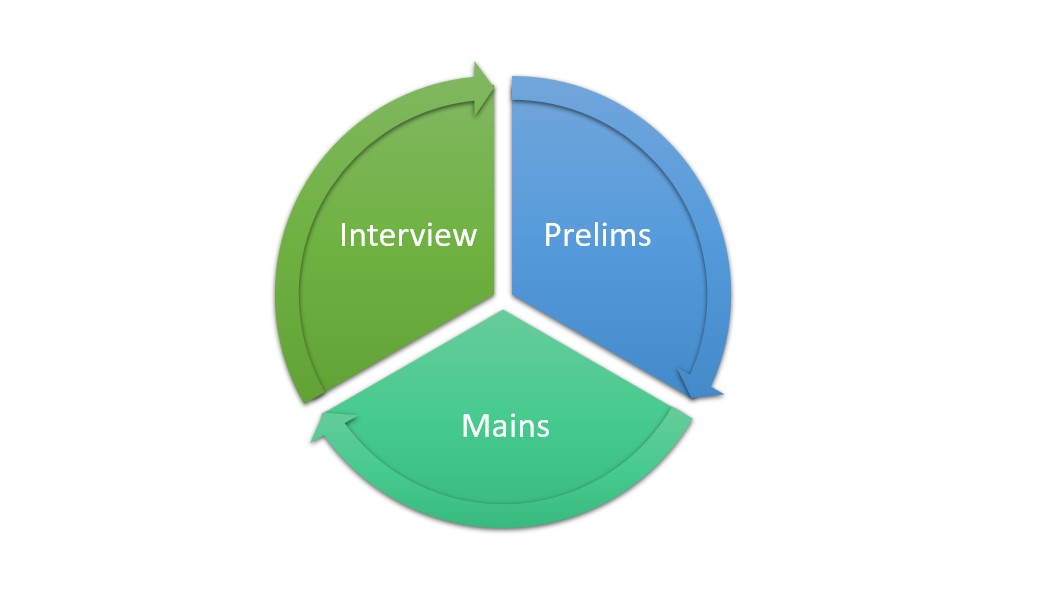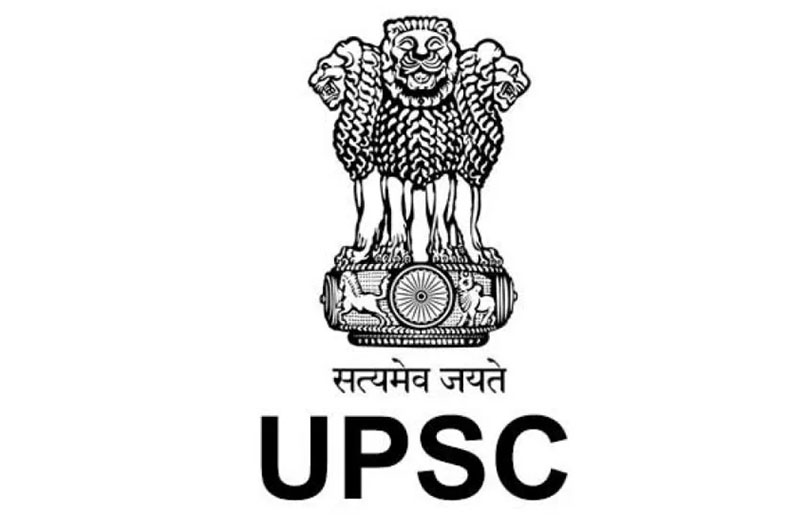Everything about Civil Services Exam
UPSC Civil Services Exam
Introduction
The UPSC Civil Services Exam (CSE) stands as one of the most prestigious and competitive examinations in India. Every year, lakhs of students appear for the exam. Conducted by the Union Public Service Commission (UPSC) annually, it serves as the gateway to prestigious positions in the Indian Administrative Service (IAS), Indian Police Service (IPS), Indian Foreign Service (IFS), and several other central services.

Preparing for UPSC civil services exam might be a challenging affair but the result is certainly very gratifying. To prepare for the competitive exam is a personal decision but to begin with, it is possibly the only job in India which gives you immense exposure to work on the grassroot level. You also get the opportunity to serve on higher strategic positions in the Union Government and State Governments as you gain the experience in the bureaucracy. In short, Civil Services work as the backbone of the administrative machinery of the country.
so let’s discuss in detail about the structure of the exam.
Pattern of Exam

The Civil Services Examination (CSE) conducted by the Union Public Service Commission (UPSC) consists of three stages – Preliminary, Mains, and Interview.
Prelims is an objective-type examination consisting of two papers – General Studies Paper I and General Studies Paper II.
Mains consists of subjective papers covering wide range of topics.
Interview consists of one-on-one panel discussion.
Prelims
The Preliminary Examination, often referred to as the Prelims, is the first hurdle aspirants must clear on their journey to becoming civil servants. It consists of two papers, both of which are conducted on the same day. These papers are:
- General Studies Paper-I (GS Paper-I)
- General Studies Paper-II (GS Paper-II), also known as the Civil Services Aptitude Test (CSAT)
General Studies Paper-I:
This paper is designed to test candidates’ understanding of a wide range of subjects, including but not limited to:
- Current events of national and international importance
- History of India and Indian National Movement
- Indian and World Geography
- Indian Polity and Governance
- Economic and Social Development
- Environmental Ecology, Biodiversity, and Climate Change
- General Science
The syllabus for General Studies Paper-I is vast and requires comprehensive preparation. It is crucial for aspirants to stay updated with current affairs, understand basic concepts, and have a clear understanding of historical events, geographical locations, and socio-economic issues.
General Studies Paper-II:
CSAT assesses candidates’ aptitude and reasoning abilities. It includes comprehension, interpersonal skills including communication skills, logical reasoning and analytical ability, decision-making and problem-solving, general mental ability, basic numeracy, and English language comprehension skills.
While GS Paper-II is qualifying in nature, meaning candidates need to secure a minimum of 33% marks to clear it, its importance cannot be undermined. Aspirants must aim to perform well in this paper to ensure they advance to the next stage.
Preparation Strategy
Preparing for the Preliminary stage requires a well-structured plan and consistent effort. Here are some strategies aspirants can adopt:
Understand the Syllabus: Thoroughly go through the syllabus provided by UPSC for both papers. Understanding the scope of each subject will help in planning the preparation strategy effectively.
Comprehensive Study Material: Refer to standard textbooks, NCERT books, and other relevant study materials recommended by experts. Make concise notes for quick revision.
Current Affairs: Stay updated with current affairs through newspapers, magazines, and online sources. Make a habit of daily news analysis and jot down important events and their implications.
Practice Previous Year Papers: Solve previous year’s question papers to understand the exam pattern, type of questions asked, and time management. It also helps in assessing strengths and weaknesses.
Mock Tests: Take regular mock tests to evaluate your preparation level and identify areas that need improvement. Analyze your performance and work on weak areas.
Revision: Regular revision is essential to retain information. Allocate dedicated time for revision of important topics and notes.
CSAT Preparation: Practice aptitude and reasoning questions regularly. Focus on improving speed and accuracy.
Time Management: Manage your time efficiently during the exam. Allocate time to each section according to your strengths and weaknesses.
The Preliminary stage of the UPSC Civil Services Exam is a critical phase that demands rigorous preparation, strategic planning, and disciplined execution. Aspirants must approach it with determination, perseverance, and a positive mindset. By following a systematic preparation strategy, staying focused, and maintaining consistency, candidates can increase their chances of clearing this stage and advancing to the mains examination, bringing them closer to their dream of serving the nation as civil servants.
Mains Exam
The Mains Examination of the UPSC Civil services exam comprises a series of written papers, each designed to assess different aspects of a candidate’s aptitude and knowledge. The Mains Examination consists of nine papers, out of which seven are considered for ranking. These papers are:
- Essay Paper
- General Studies Paper-I
- General Studies Paper-II
- General Studies Paper-III
- General Studies Paper-IV
- Optional Subject Paper-I
- Optional Subject Paper-II
- Indian Language Paper (Qualifying)
- English Language Paper (Qualifying)
The Mains Examination spans over a period of five to seven days, with each paper conducted on separate days. The marks obtained in the Mains Examination, along with the marks scored in the Interview, determine the final rank and selection of candidates.
Essay
- The essay paper is one of the most crucial components of the Main Examination.
- Candidates are required to write two essays, each carrying 125 marks, chosen from a pool of topics covering a wide range of subjects.
- The essay paper evaluates candidates’ ability to express their opinions, analyze issues critically, and present coherent arguments in a structured manner.
General Studies
- The General Studies (GS) papers form the core of the Main Examination and are divided into four papers: General Studies I to IV.
- General Studies I covers Indian heritage and culture, history, and geography of the world and society.
- General Studies II focuses on governance, constitution, polity, social justice, and international relations.
- General Studies III deals with technology, economic development, biodiversity, environment, security, and disaster management.
- General Studies IV evaluates candidates’ ethics, integrity, and aptitude.
- Each General Studies paper carries 250 marks, totaling 1000 marks.
Optional Subject Papers
- Candidates are required to choose one optional subject from a list provided by the UPSC.
- The optional subject papers consist of two papers, each carrying 250 marks, making a total of 500 marks.
- The optional subject papers are designed to test candidates’ in-depth knowledge and understanding of the chosen subject.
Language Papers
- The language papers are qualifying in nature and aim to test candidates’ proficiency in English and one Indian language.
- The English language paper tests candidates’ comprehension and communication skills and carries 300 marks.
- The Indian language paper, chosen from the Eighth Schedule of the Constitution, also carries 300 marks.
Strategy
Preparing for the Mains Examination requires a meticulous strategy and dedicated effort. Here are some key strategies aspirants can adopt:
Understanding the Syllabus: Familiarize yourself with the detailed syllabus provided by UPSC for each paper. Understand the weightage of different topics and prioritize your preparation accordingly.
Essay Writing: Develop the skill of effective essay writing by practicing regularly. Choose diverse topics and focus on structuring your essays logically, presenting arguments coherently, and expressing ideas concisely.
General Studies Papers: Thoroughly cover the vast syllabus of General Studies papers. Focus on current affairs, contemporary issues, historical events, socio-economic developments, and government policies. Make use of reliable sources such as newspapers, magazines, standard textbooks, and online platforms for comprehensive preparation.
Optional Subject: Choose your optional subject wisely based on your interest, background, and scoring potential. Master the subject by studying standard reference books, attending classes (if required), and solving previous year’s question papers.
Answer Writing Practice: Practice answer writing regularly to enhance your writing speed, clarity, and articulation. Focus on structuring your answers, providing relevant examples, and addressing the question comprehensively.
Revision: Allocate sufficient time for revision of important topics, notes, and key concepts. Regular revision helps in retaining information and reinforcing learning.
Time Management: Develop effective time management skills to allocate adequate time to each paper during the examination. Practice writing mock tests within the stipulated time frame to improve speed and accuracy.
Language Papers: Prepare for the Indian Language and English Language papers diligently. Focus on grammar, vocabulary, comprehension, and writing skills to ensure proficiency in these languages.
Personality test (Interview)
Candidates who clear the Mains are called for the Personality Test, commonly known as the interview. This stage assesses candidates’ personality traits, communication skills, and suitability for a career in civil services.
Result
After the interviews are over, the final merit list is prepared by considering the marks obtained by the aspirants in Mains exams and the personality test (Interview).
Want to read some more articles?
-
 Factories Act 1948 for APFC, ALC, JRF, EO/AO exams by UPSC
Factories Act 1948 for APFC, ALC, JRF, EO/AO exams by UPSC -
 UPSC Civil Services Exam
UPSC Civil Services Exam -
 Syllabus for DRDO SAO (Senior Administrative Officer) Grade-II
Syllabus for DRDO SAO (Senior Administrative Officer) Grade-II -
 DRDO Senior Administrative Officer(UPSC)- notification, syllabus
DRDO Senior Administrative Officer(UPSC)- notification, syllabus -
 Everything about UPSC
Everything about UPSC -
 The Payment of Bonus Act 1965 for various exams such as APFC, EO/AO, ALC, JRF
The Payment of Bonus Act 1965 for various exams such as APFC, EO/AO, ALC, JRF -
 National Parks in India
National Parks in India -
Definitions and purpose of Marketing
-
 Study Material for DRDO SAO
Study Material for DRDO SAO
Recruitment notifications update!
-
Recruitment 2025: Recruitment for Teaching Staff in The School of Planning and Architecture, New Delhi - Vacancy, Posts, Grade Pay, etc
-
Recruitment 2025: Vacancies in Inter-University Centre for Astronomy and Astrophysics (IUCAA)
-
Recruitment 2025: Recruitment on Deputation basis in National Anti Doping Agency (NADA)
-
Recruitment 2025: Various vacancies in Artificial Limbs Manufacturing Corporation of India (ALIMCO)
-
Recruitment 2025: Various vacancies in Land Ports Authority of India
Copyright© 2024 | All rights reserved | Made in India